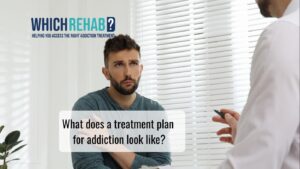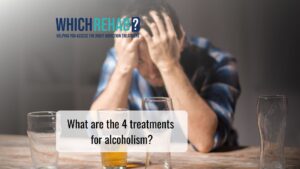What is Pregabalin Addiction?
Pregabalin, also known by its brand name Lyrica, is a prescription-only anticonvulsant medication often used to treat epilepsy as well as pain resulting from nerve damage due to injuries or infections, such as neuropathic pain and shingles. It has also most recently been prescribed to alleviate symptoms of Fibromyalgia and is often used as an alternative to other opioids drugs.
Pregabalin dependence occurs when you abuse the drug despite any negative consequences that might occur as a result. Addiction is characterised as a compulsive psychological need for, and use of, a habit-forming substance. While addiction itself is psychological, it and can also lead to physical dependence. Physical dependence occurs when your body becomes so reliant on the presence of the drug in its system, that it requires Pregabalin to function normally. Although Pregabalin is a prescription drug, it still carries the risk of addiction, even when taking it as recommended.
It is important to note, however, that stopping Pregabalin suddenly could result in some unpleasant withdrawal symptoms. When taking any kind of medication, whether it has been prescribed to you or not, you should always seek medical advice before complete cessation.
ARE YOU SUFFERING FROM PREGABALIN ADDICTION?
Our team of rehab and addiction specialists are on hand to talk to you day or night. Let us help you take back control.
Symptoms of Pregabalin Addiction
Pregabalin may be a prescription-only medication, but the potential for abuse is still high. Whether you have obtained Pregabalin from your doctor, or through other means, if you’re exceeding the recommended dose for any reason, there is a possibility you have developed an addiction.
Pregabalin is often abused because of its ability to make users feel euphoric, relaxed and calm and can also intensify and enhance the effects of other drugs or substances such as heroin and alcohol.
Confronting someone who has an addiction to Pregabalin can be extremely difficult. These conversations are often met with denial and defensive behaviour. It’s important to remember that someone suffering from addiction issues will do everything they can to conceal their habit, which is why symptom spotting might be able to help you identify a problem.
If you’ve been abusing Pregabalin yourself, then admitting you have a problem isn’t always easy. However, if you are beginning to worry about the impact it’s having on your health, then it’s important to familiarise yourself with some of the signs and symptoms of Pregabalin addiction.
These symptoms can manifest in several different ways, and it’s not uncommon for people to mistake the symptoms of Pregabalin addiction for side effects of the drug itself, and choose to dismiss them instead of seeking help.
It’s important to note that the effects of psychological dependence on pregabalin can vary from person to person, and the severity of these effects may depend on factors like the dose, duration of use, and individual differences.
Common behavioural and psychological symptoms of Pregabalin addiction
It’s important to note that the effects of psychological dependence on pregabalin can vary from person to person, and the severity of these effects may depend on factors like the dose, duration of use, and individual differences.
Some of the common behavioural and psychological symptoms of Pregabalin addiction include:
- Social isolation
- Withdrawn when around others
- Impulsivity and reckless behaviour
- Irritability
- Panic attacks
- Exaggerating medical symptoms to get more
- Agitation
- Hostility
- Can't stop using despite the negative consequences
- Financial difficulty as a result of funding your habit
- Concealing the true nature of your Pregabalin use
- Obsessing over getting more Pregabalin
- Mood swings
- Anxiety
Common physical health symptoms of Pregabalin use
Despite the initial euphoric effects associated with Pregabalin use, when it’s abused or used in excessive amounts, pregabalin can lead to physical health problems and addiction.
Some of the common physical health symptoms of Pregabalin addiction include:
- An increased or irregular heart rate and palpitations
- High fever
- Depression
- Anxiety
- Impaired memory
- Difficulty speaking
- Lack of coordination
- Dizziness
Serious side effects of Pregabalin addiction
Although slightly more uncommon, Pregabalin addiction can result in more serious side effects.
These serious side effects and their symptoms can include the following:
- Depression
- Suicidal thoughts
- Muscle pain, chest pain, weakness or tenderness
- Fever
- Vision problems
- Easy bleeding or bruising
- Swelling in hands or feet
- Dizziness
While individual symptoms might not be so easy to recognise at first, you should seek help from an addiction professional as soon as you notice any type of decline in your physical or mental health.
Symptoms of combining Pregabalin and alcohol
Combining anti-convulsant drugs such as Pregabalin with depressants such as alcohol can have extremely damaging effects, the consequences of which can be fatal.
Taking this medication with alcohol can enhance the feeling of intoxication and intensify the feeling of euphoria in users. However, both alcohol and Pregabalin act as depressants on the central nervous system, which can affect breathing, blood pressure and other vital functions.
Mixing drugs is known as ‘polysubstance abuse’. Many people believe that taking alcohol with Pregabalin will double its pleasurable effects, but while this may be the case, chemicals in these substances also combine to produce a far more dangerous reaction inside the body, doubling the severe risk of side effects including overdose and death. Once polysubstance abuse begins, the likelihood of long-term use increases and the cycle of addiction continues.
If you’re someone who has been using Pregabalin with alcohol, regardless of intention, you must take the time to look into the possible effects and risks of combining these two substances. This way, you will be well-equipped when it comes to recognising any potentially dangerous symptoms.
BREAK FREE FROM ADDICTION
It can feel hopeless falling into the pit of addiction. Don't struggle alone, help is at hand.
Pregabalin detox and withdrawal
Suddenly discontinuing your Pregabalin use or drastically decreasing the dose can lead to withdrawal symptoms, as your body begins to rid itself of the toxins that have built up due to long periods of Pregabalin abuse.
It’s during this period that many people go back to using their substance of choice, in this case, Pregabalin, because they can’t cope with the symptoms of withdrawal. To reduce the risk of relapse, as well as any possible harm that may arise during the withdrawal period, it is highly recommended that you undergo a Pregabalin detox in the safety of a residential rehab facility.
The withdrawal symptoms that can occur through abuse of Pregabalin are most similar to those caused by Benzodiazepines. Although they’re considered less intense, complications can still arise. Typically, the first symptoms can be felt just a few hours after your last dose and can continue for a few days.
The intensity of Pregabalin withdrawal symptoms will vary depending on factors such as the duration of use, the amount you have been taking and the level of tolerance your body has developed. Pregabalin withdrawal won’t be the same for each person, however, the symptoms listed below are an indication of what you might experience.
Common side effects of Pregabalin withdrawal
Symptoms of Pregabalin withdrawal can manifest in many ways, but physical symptoms are most recognisable. Some of the most commonly reported physical symptoms include:
- Headaches
- Weight gain
- Body aches
- Joint pain
- Itching
- Muscle spasms
- Nausea
- Shortness of breath
- Stomach pain
- Seizures
- Sweating
- Chills
- Diarrhoea
- Fatigue
- Dizziness
- Hot flashes
- Flu-like symptoms
Addiction of any kind can have a devastating impact on every aspect of your life. These effects can be physical, psychological and social. The long-term effects of Pregabalin are still unknown, however other similar anticonvulsants drugs have reported long-term side effects such as ongoing flu-like symptoms, feeling disoriented, rapid eye movement, tremors or convulsions, and bruising.
Treatment options for Pregabalin addiction
The treatment options for Pregabalin addiction will vary depending on the duration of use and the amount of Pregabalin you have been taking. If you have developed a physical dependence on Pregabalin, you will require a medically supervised detox to come off the drug safely and comfortably. However, there are also many other suitable forms of treatment available, and you must do your research and choose the option best for you.
Support Groups
There are hundreds of support groups across the UK there to help people suffering from prescription drug addiction. These groups aim to keep you connected with a community of like-minded people who have experienced addiction for themselves and now dedicate themselves to a recovery programme to live a clean life while helping others achieve and maintain long-lasting recovery.
Counselling/Therapy
Understanding the possible causes of your addiction can help you when it comes to identifying certain triggers and exploring underlying issues or unresolved traumas. If you prefer a more private setting, then one-to-one therapy sessions with a qualified addictions counsellor are a great way to begin the healing process.
Outpatient Rehab
Outpatient rehab caters to those whose addictions are not too severe and don’t need to undergo a medically supervised detox. Outpatient treatment programmes will require you to attend a certain amount of therapy sessions during the week until you complete the programme. Sessions typically focus on relapse prevention, group and one-to-one counselling.
Inpatient Rehab
Inpatient rehab is highly recommended for addiction and dependence of any kind, especially for those who require a supervised detox. Residential rehab programmes you have staff on hand to care for you around the clock to ensure your safety and comfort. Many people find they need to be removed from society and their environment to fully focus on, and completely dedicate themselves to, a recovery programme.
GET CONFIDENTIAL HELP NOW
Book your free confidential consultation call to discuss rehab options in Birmingham
FAQs
Pregabalin is a prescription-only medication used to treat seizures and nerve pain caused by illnesses such as diabetic neuropathy. While it is not an illegal substance itself, it is often obtained illegally and abused because of its ability to make users feel calm and euphoric.
Signs of Pregabalin abuse can manifest in various ways. A Pregabalin addiction can be identified through physical, phycological, social and behavioural symptoms. These include isolating yourself from friends and family, mood swings, agitation, fever, heart palpitations and depression. If you are worried about any of these symptoms in yourself or someone you know, you should seek medical advice.
The time it takes to become addicted to pregabalin varies from person to person but contributing factors can include dosage, frequency of use, and individual differences.
Tolerance to pregabalin’s effects can develop relatively quickly, often within a few days to a few weeks of regular use.
Physical dependence may also occur within a few weeks, meaning that the body has adapted to the drug, potentially leading to withdrawal symptoms when not using it. Psychological dependence, marked by a strong craving for the drug, can develop alongside physical dependence, often taking several weeks to months.
Individual factors, including genetics and a personal history of substance abuse, can play a role in the speed at which addiction develops.
It’s important to use pregabalin only as prescribed by a medical professional to minimize the risk of addiction, and seeking help if concerns arise is crucial for early intervention and recovery.
Withdrawal can begin just a few hours after your last dose of Pregabalin and can sometimes continue for at least a week afterwards. It’s important to consider that everyone will experience withdrawal differently depending on the severity of their addiction and whether they have other health issues.
It is possible to overdose on Pregabalin and doing so can result in some extremely unpleasant symptoms, such as depression, agitation and even seizures. However, mixing Pregabalin with other illegal drugs such as heroin can increase your risk of a fatal overdose.





